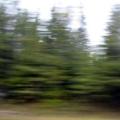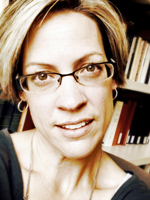274. Susan Brower-Toland on Ockham's Philosophy of Mind
An interview with Susan Brower-Toland covering Ockham's views on cognition, consciousness, and memory.
Themes:
• S. Brower-Toland, “Facts vs. Things: Adam Wodeham and the Later Medieval Debate over Objects of Judgment,” The Review of Metaphysics 60 (2006), 597-642.
• S. Brower-Toland, “Intuition, Externalism, and Direct Reference in Ockham,” History of Philosophy Quarterly 24 (2007), 317-36.
• S. Brower-Toland, “Ockham on Judgment, Concepts, and the Problem of Intentionality,” Canadian Journal of Philosophy 37 (2007), 67-110.
• S. Brower-Toland, “Medieval Approaches to Consciousness: Ockham and Chatton,” Philosophers’ Imprint 12 (2012), 1-29.
• S. Brower-Toland, “Olivi on Consciousness and Self-Knowledge: The Phenomenology, Metaphysics, and Epistemology of Mind's Reflexivity,” Oxford Studies in Medieval Philosophy 1 (2013), 136-71.
• S. Brower-Toland, “How Chatton Changed Ockham’s Mind: William Ockham and Walter Chatton on Objects and Acts of Judgment,” in G. Klima (ed.), Intentionality, Cognition and Mental Representation in Medieval Philosophy (Fordham: 2014), 204-34.
• S. Brower-Toland, “Ockham on the Scope and Limits of Consciousness,” Vivarium 15 (2014), 197-219.







Comments
Psychosis and Intuitive Cognitions
I wonder what Ockham would have made of psychotic episodes in people with schizophrenia. These people appear to have intuitive cognitions of unreal things and form false conclusions about the things.
I wonder if he'd have taken it as evidence that falsified his theory that we don't draw false conclusions from intuitive cognitions.
Add new comment